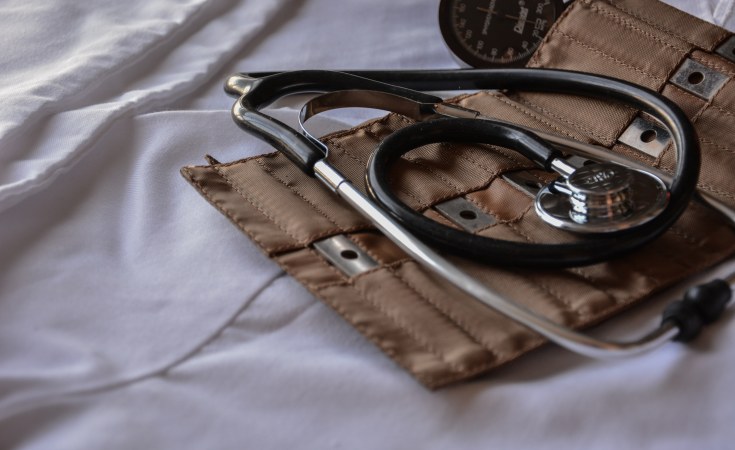The association said the average medical and dental consultant is not only a clinician but also doubles as a teacher for medical students and doctors in specialist (residency) training.
The Medical and Dental Consultants' Association of Nigeria (MDCAN) has said not less than 500 of its members left the country between 2020 and 2022.
In a statement obtained by PREMIUM TIMES on Sunday, the association's President, Victor Makanjuola, said the figure was revealed following a survey conducted among its chapters in March 2022.
Mr Makanjuola said findings show that over 500 medical consultants had left Nigeria for more developed countries over the preceding two years.
He said further exploration of data indicates that nine out of every 10 medical and dental consultants with less than five years of experience on the job had plans to leave the country.
He said the association carried out the survey following the ugly impact of the continuous brain drain in the country's health sector.
"It is important to note that the average medical and dental consultant is not only a clinician but also doubles as the teacher for medical students and doctors in specialist (residency) training," he said.
Mr Makanjuola explained that the loss of this category of the workforce will not only have an immediate negative impact on clinical service delivery but will leave a devastating impact on the training of future doctors in Nigeria.
About MDCAN
MDCAN is a group of medical specialists in different fields of medicine and dentistry with the highest qualifications in medical practices.
Their responsibilities include training medical doctors, offering specialist services to patients and also conducting research in medical fields.
MDCAN has members in government and non-governmental hospitals and tertiary and secondary health facilities across the country.
Impact of brain drain
The mass exodus of Nigerian health workers has continued to create a huge gap in the country's health system.
Not less than 5,600 Nigerian doctors emigrated to the United Kingdom (UK) in the last eight years, according to the President of the Nigerian Medical Association, Uche Rowland.
Mr Rowland said the mass exodus of licensed medical doctors and other health professionals to more developed countries has brought significant disruptions to Nigeria's health care system.
He said Nigerian medical doctors are seeking job opportunities in the US and UK, while some are migrating to Middle Eastern countries like Saudi Arabia, Qatar, and Oman.
Like doctors, nurses are also leaving the country in search of greener pastures. Data from the Nursing and Midwifery Council (NMC) of the UK shows that 225 nurses and midwives migrated to the UK in 2019; 663 in 2022; and 626 in 2021.
Within the ten months of this year, 2,946 nurses and midwives have relocated to the UK to seek greener pastures.
A 2022 UK immigration report also showed that 13,609 Nigerian healthcare workers (including doctors) were granted working visas in the past year, making the country second only to the 42,966 from India.
The MDCAN earlier this year said at least 100 of its members left the country within 24 months.
Mr Makanjuola, the association's President, said the COVID-19 pandemic brought to the fore the global shortage of healthcare manpower.
He said an inherent imbalance has been observed in the desperate efforts by different countries to secure the services of an optimal quantity of quality manpower required to run their health systems.
He lamented that a large proportion of the newly engaged healthcare workforce in developed countries comes from the low- and middle-income counties (LMICs) that ordinarily have fewer healthcare workforce in their countries.
Salvaging the situation
Mr Makanjuola said only 3,000 fresh medical and dental doctors, on average, are produced in Nigeria, and another 1,000 are produced by foreign medical schools annually.
He said this figure falls far short of the number of such healthcare personnel required to meet the country's yearly new medical manpower supply needs, estimated to fall between 10,000 and 12,000.
He said the association will hold a one-day summit with the possibility of birthing a turning point in medical education in Nigeria.
"As a concerned stakeholder, we resolved to kickstart this necessary but difficult conversation that seeks to help the country in shaping the future of medical education in Nigeria in the hope of meeting the human resources needs of our national health system," he said.
The summit is scheduled to hold on 6 December in Abuja, Nigeria's federal capital territory.


